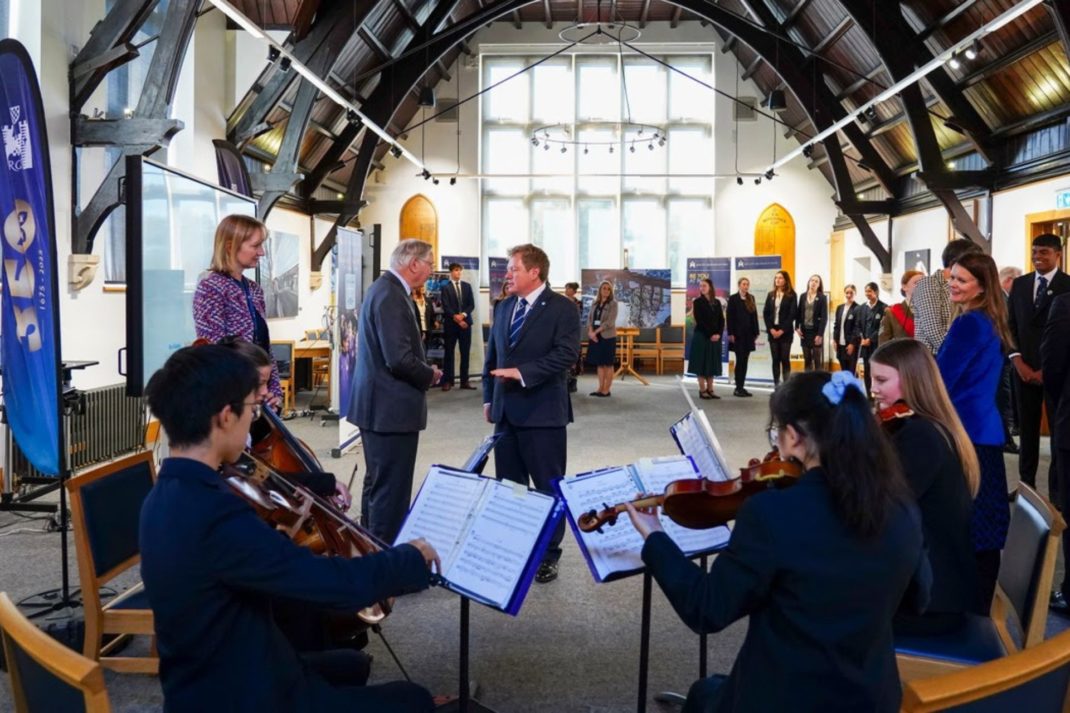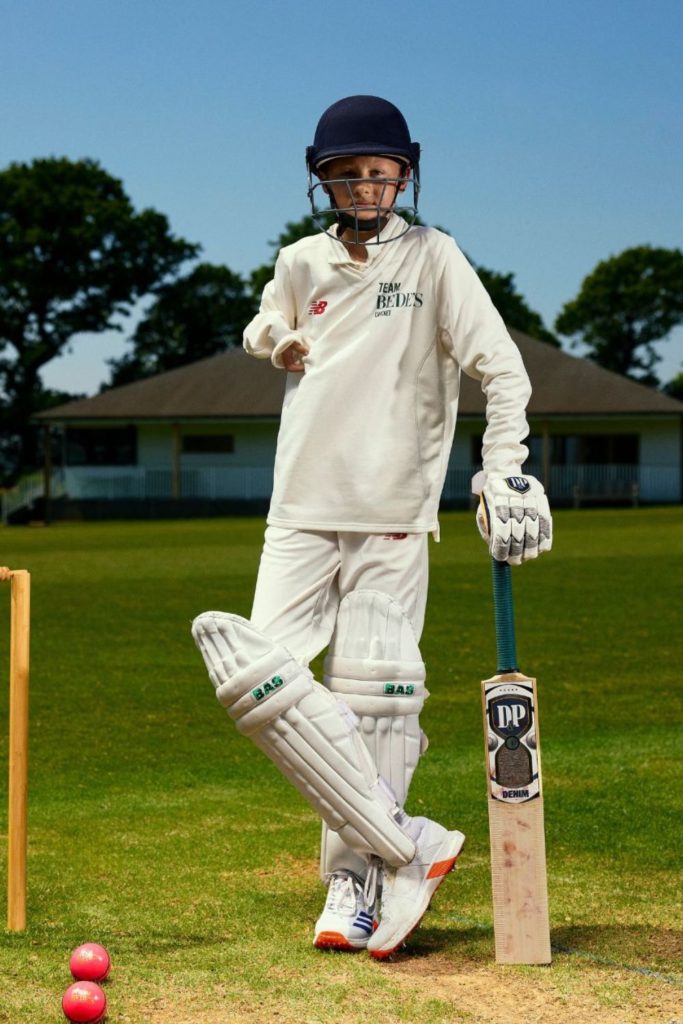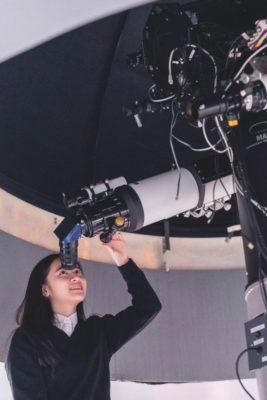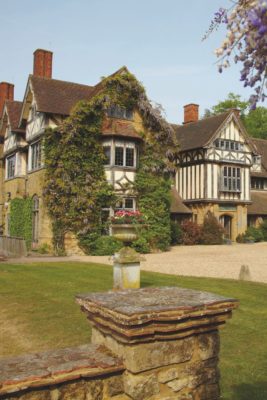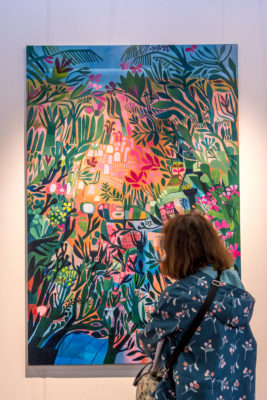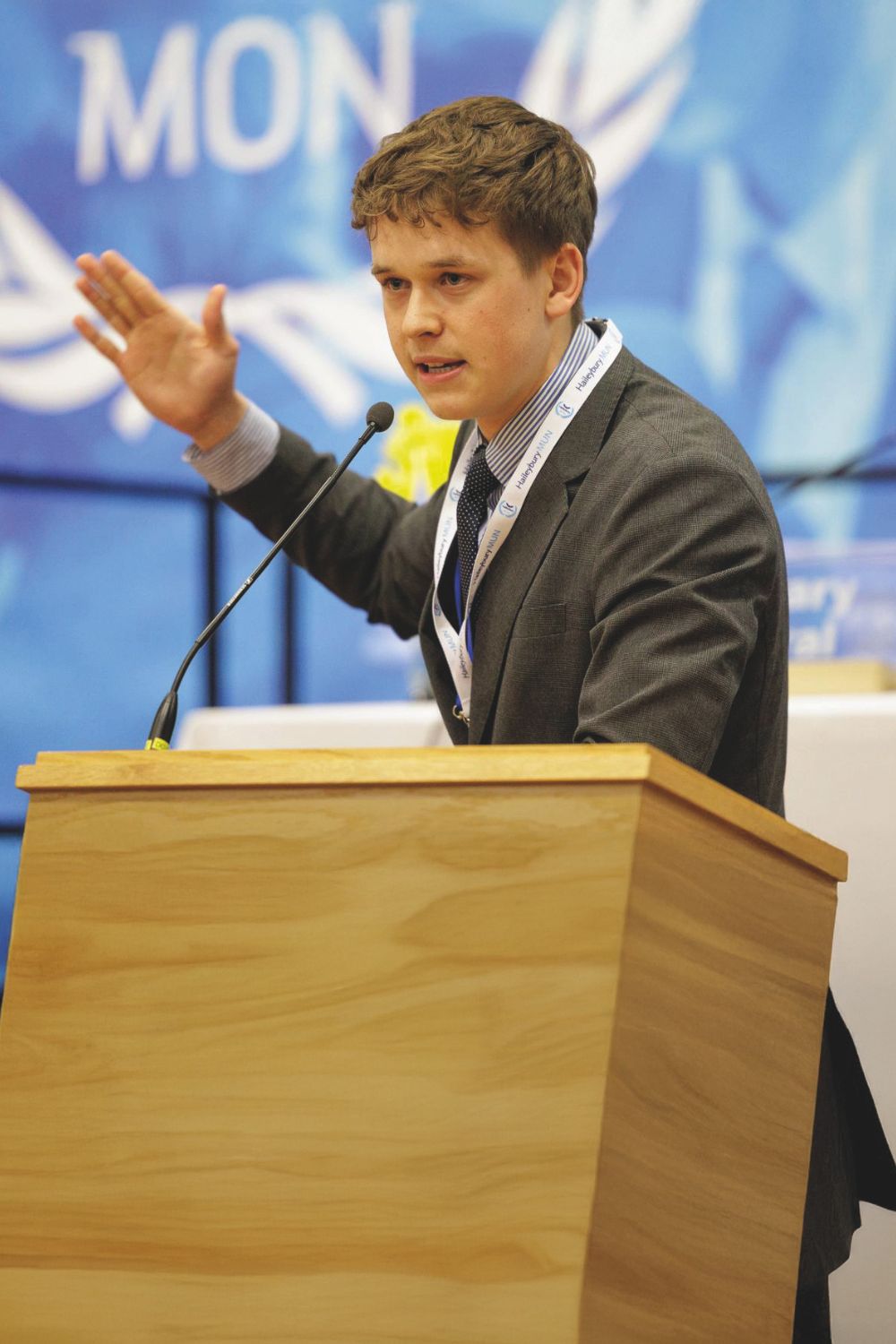
Model UN: The School Club Teaching Invaluable Life Skills
By
1 hour ago
MUN is becoming more important for students than ever before
The Model United Nations (MUN) initiative began in 1921, initially as a series of League of Nations simulations – the first of which took place at the University of Oxford that November. After the United Nations was founded in 1945, the simulated version adapted with it, and now, more than 400,000 students of all ages take part in MUN conferences worldwide every year. So how important is MUN for teaching today’s students about our rapidly changing world? Eleanor Doughty investigates.
Inside The Global MUN Movement
It was the autumn term of 2009 at Haileybury School in Hertfordshire, and 13-year-old Oliver Hirschfield was looking for an activity to do one evening. A boy in the year above, he remembers, had been attending the Model UN club, and explained to him what it was all about. ‘I thought it was pretty cool,’ Hirschfield recalls. ‘I hadn’t really done any public speaking before I came to Haileybury, and politics was something I was interested in, though I didn’t know much about it.’ So, he thought he’d give the club a go. ‘I went to an evening session and loved it – I thought it was amazing.’
Back then, Haileybury MUN had no more than 80 members. Today, there are in the region of 250, and it’s one of the school’s most popular co-curricular activities. Hirschfield left Haileybury in 2014, and, alongside two of his peers, co-founded MUNiverse, a software company that helps support schools’ Model UN conferences. He returned to the school as a computer science teacher in 2018, and then in 2023, became its dedicated, full-time MUN coordinator – a role more or less unheard of elsewhere. But the movement is growing: earlier this year, Gordon’s School in Surrey was advertising for a part-time coordinator of MUN, debating, and mock trials. ‘MUN staff are some of the best staff I meet in schools,’ admits Hirschfield.
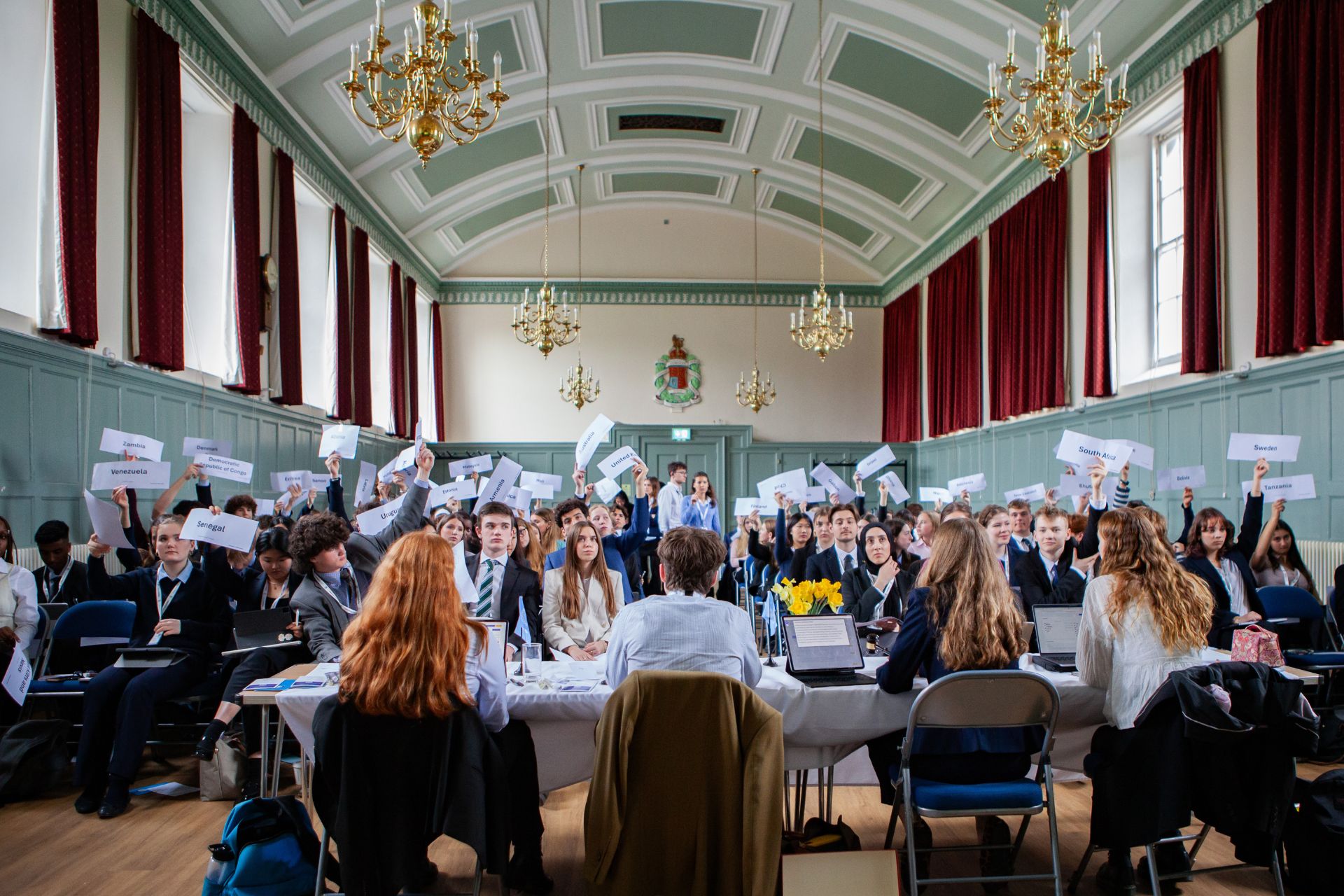
Haileybury’s MUN conference celebrated its 30th anniversary this year
At Sydenham High School in south London, one of the 26 schools in the GDST network, geography teacher Jennie Dracup has recently taken over an embryonic MUN club. In September, the school introduced its new academic enrichment curriculum, and the research and preparation work that the girls do for MUN forms a part of this. ‘In a world where women’s rights and voices seem to be being eroded, the ability to formulate persuasive arguments is a crucial skill for our girls,’ says Dracup. She can see the progress her students have made in ‘developing strong oracy skills and confidence in articulating and sharing ideas.’ Plus, their worlds are opening up: ‘They are developing greater depth in their understanding of key global issues; MUN gives the girls the opportunity to engage in collaborative debate and learn important skills of diplomacy.’
Model UN is also thriving at Stowe School in Buckinghamshire, under the watchful eye of history teacher Rhea Stafford-Smith. ‘It’s one of those things that you just have to see in action to think, “this is brilliant”,’ she enthuses. Stowe runs two MUN clubs: one for years nine to 11 and a senior club for older pupils, and both are open to all – though Stafford-Smith has a reasonable expectation that ‘if you sign up, you come for the term’. It is, she observes, a cunning way of finding new talents within the pupil body, especially from those who might not have identified themselves as natural-born debaters, but rather ‘those who find that they enjoy it and are quite good at it’.
Who Can Benefit From Joining A MUN Club?
Of course, MUN is not just about standing up and pontificating. Mirroring the real United Nations, MUN activities are split into different elements, from the Security Council – with its responsibility for the maintenance of international peace – to the General Assembly, where decisions are taken on security questions. As such, the club attracts a wide range of pupil types.
Catriona James, English teacher and director of MUN at Felsted School in Essex, can divide her MUN charges into several categories. Among them: ‘the shy and quiet, the quiet but not shy, and the people who don’t see themselves as clever enough.’ She encourages the first group, saying, ‘if you’re interested in what’s going on in this world, MUN is a ring-fenced opportunity to do some research into a topic on which you can have opinions.’ Such pupils, she adds, can involve themselves in the note-passing – a mechanism for correspondence across the room – or can support a committee during the lobbying process.
Others learn by osmosis. One of James’ former pupils, now a doctor, found it hard to commit to much on top of her studies, and instead was encouraged to observe in MUN sessions. Such pupils are welcomed with open arms by James ‘to pick up on what’s being discussed and form their own silent opinions – it’s still a learning process’. In fact, MUN rewards ‘the quietly studious’, as Stafford-Smith puts it. ‘It’s a really good medium for pupils who like to have done their research. In more traditional forms of debating, you can get away with not knowing your stuff but sounding confident.’ In MUN, ‘there’s more opportunity for you to be challenged, and opportunities, if you’re well-prepared and up against somebody who isn’t, to say, “actually, I think you’ll find…”. It does a brilliant job of building those skills.’
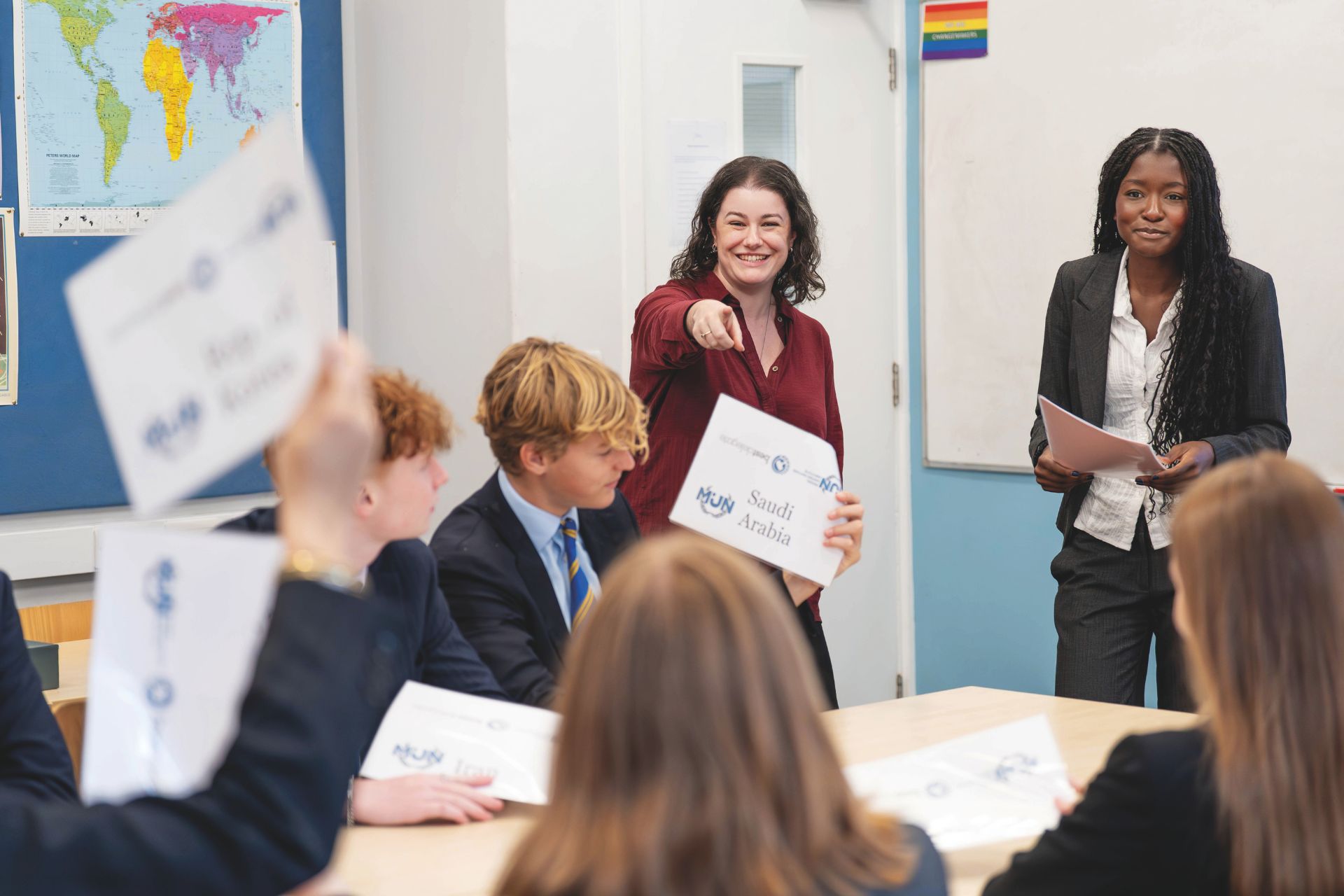
History teacher Rhea Stafford-Smith leads the MUN club at Stowe School
Inside The Art Of Debating
Professor Neil Mercer is a psychologist focused on the development of children’s spoken languages, and the author of Oracy: The Transformative Power of Finding Your Voice. Initiatives such as MUN, he says, help young people see that they can make their voices heard ‘and that they don’t need to let others be the people that speak out. If it’s done well, it means that they become better at listening to other people’s points of view and evaluating them’. But they have to be taught to do it. ‘Like anything else with spoken language, we’re not hard-wired to do it,’ says Professor Mercer. ‘If you just put people into groups and say “discuss this”, you’ll often find that one person dominates. It’s only when people are trained how to operate in that sort of situation that they can do it well.’
Is Model UN more important now than ever before, in this turbulent world – or is it just that today’s generation of schoolchildren know more about the global context than previous generations ever did? For Hirschfield, there are obvious ways in which the MUN context has changed. ‘When I was at school, we could have a newspaper delivered to our boarding house, and that would be the main information source,’ he recalls. ‘You could go online, but news apps weren’t great, and newspapers were still the best ways to get proper news.’ Now, teenagers can access anything at the touch of a button – and that can be a good or a bad thing, he says.
‘Yes, they have access to more information, so they should be able to find lots of opinions. But some pupils are more politically driven now, and more likely to fall on either the left or the right. That influences how they do at MUN and what countries they think they should be representing – and which ones they see as “good” and “bad”.’ For his own part, he laughs, he always liked ‘stirring the pot in debates’, and has a penchant for representing the Democratic People’s Republic of Korea. Stafford-Smith also observes how the teens of today are ‘very well informed but from a particular perspective. You’ll ask, “have you heard about XYZ?”, and quite a lot of the time they have, but it’s fascinating to see the different information they have been given, depending on which corner of the internet they live in’.
Playing the part of more ‘problematic’ countries is all part of the intellectual challenge, says Rory Drummond-Fawcett, who teaches English at Christ’s Hospital in West Sussex and manages the school’s MUN club. ‘Students like making a speech that gets a few laughs or gasps, and some like to be provocative and say things that – hopefully – they don’t mean.’ At Christ’s Hospital, Drummond-Fawcett explains, ‘there are a lot of sporting and musical accolades to be awarded, and MUN is one of those places where academic prowess gets a bit of a spotlight’. He takes a backseat and allows the sixth formers to lead the sessions ‘so it feels like they’ve got some responsibility – they like showing off’.
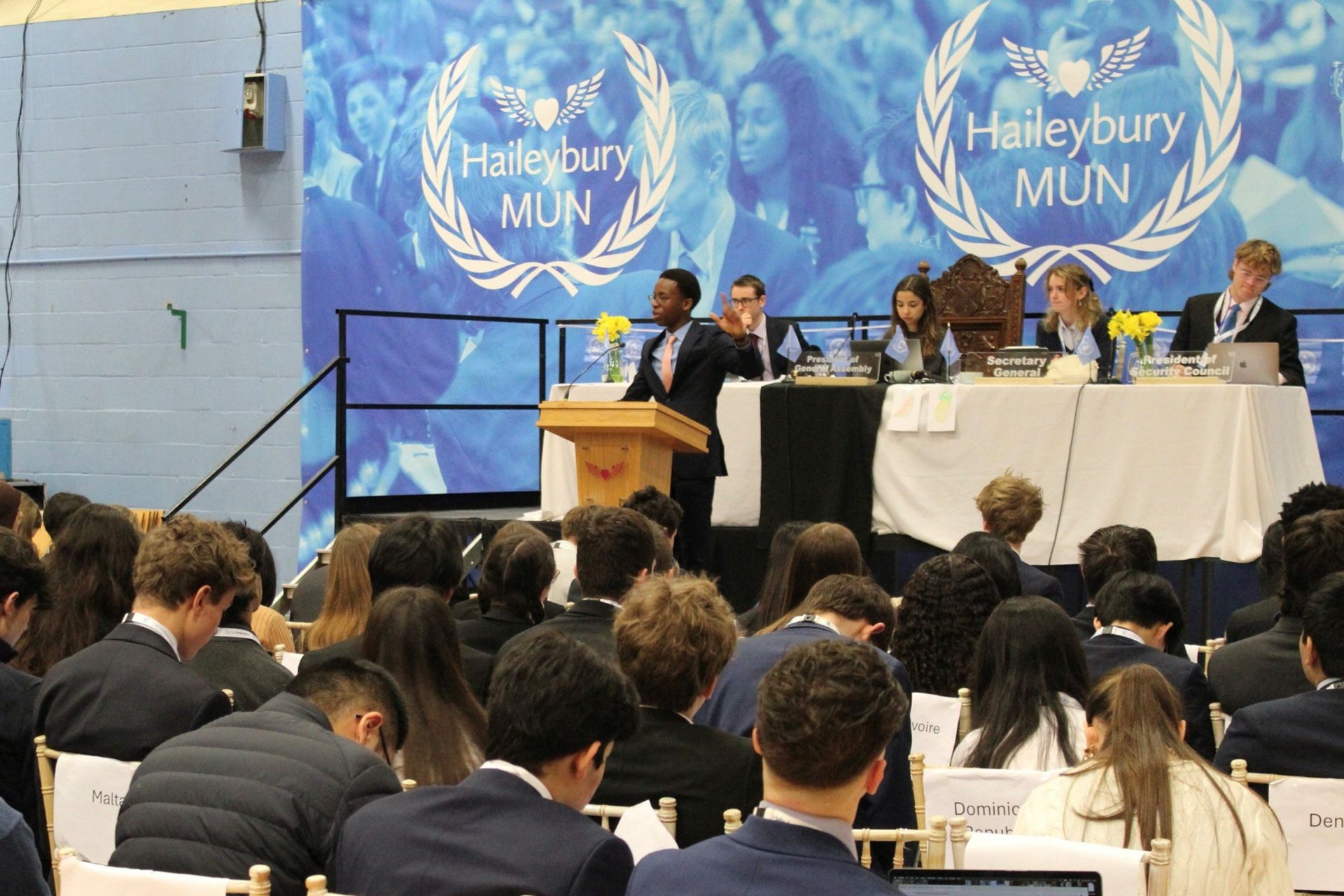
Christ’s Hospital students speaking at Haileybury’s annual MUN conference
MUN Beyond The Classroom
As for whether MUN is a good thing to for students to put on their CV or university personal statement, ‘in and of itself, “I do Model UN” probably doesn’t carry much weight’, Drummond-Fawcett says. ‘But it helps with the skills that are going to impress in an interview environment. We have seen a lot of quiet, shy students come out of their shell in MUN.’
Hirschfield reflects on his own similar experience taking part in MUN. ‘I learnt so much about how to speak publicly – in lessons you might read from a chapter in the classroom, but that’s nothing compared to having to write your own speech and deliver it in front of people on a frequent basis. The idea that you’re forced to understand other people’s point of view, not just because you have to speak about it but because it’s also part of the diplomacy part, is one of the soft skills that you won’t find in a lesson environment.’
There is a critical social aspect to MUN, too. When James takes her pupils to the International School of the Hague’s annual Model United Nations conference, they drink it all in: ‘that understanding of connection – of colour, creed and kind – in a world that seems to be increasingly polarised’. She continues: ‘The UN wasn’t made to send us to heaven; it was designed to prevent us from going to hell, and that resonates. If we can talk to children about finding a common ground, whether that’s on an international level or a social level, they will be absolutely fine in life.’


